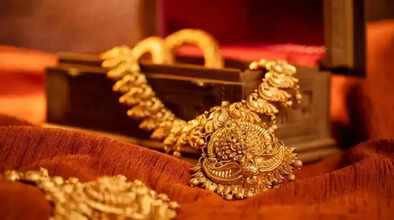Daughter-in-law or daughter... Who will inherit the jewelry after the mother-in-law's death? Learn the rules.
Rights on Jewelry After Mother-in-Law's Death: Who among the daughter-in-law and daughter will inherit the jewelry after the mother-in-law's death? Learn the rules.

Rights on Jewelry After Mother-in-Law's Death: We often hear news of property disputes in the country. Sometimes the disputes are about property, and sometimes about something else. Whether it's a daughter-in-law or a daughter, when it comes to the household jewelry after the mother-in-law's death, it often creates confusion within the family. People assume that the one the mother-in-law trusted the most until her death will probably become the owner of all the jewelry. However, this is not the case. Legal rules determine who will inherit the jewelry. If the mother-in-law made a will during her lifetime, the matter becomes much easier. Because, based on the will, the jewelry goes directly to the person whose name is listed. But if there is no will, let us explain who will receive the jewelry.
Who will receive the mother-in-law's jewelry?
If the mother-in-law has prepared a will before her death, the jewelry is given to the person whose name is listed in the document. Whether it is a daughter-in-law or a daughter is irrelevant. Sometimes, the mother-in-law divides the jewelry among different people based on her trust or needs. A will is the most legally strong document, so no family member can challenge it.
Unless there is evidence of fraud, a will virtually eliminates disputes. If the jewelry is given to the daughter in the will, she will be its owner, and if the daughter-in-law's name is listed, she will have full legal power. However, if the daughter's name is listed, she will receive the jewelry.
How is the jewelry distributed if there is no will?
If the mother-in-law passes away without a will. The jewelry is then divided equally among their legal heirs. This includes the husband, sons, daughters, and mother. It's worth noting that the daughter-in-law is not included in this list. A daughter-in-law can only inherit the jewelry if her husband, or her mother-in-law's son, gives her his share of the jewelry, or the family mutually agrees.
If the mother-in-law has no husband, no mother, and only the children are heirs, the jewelry will be divided equally between the sons and daughters. Here, a daughter's right is as strong as that of a son. Many people assume that a married daughter will receive a smaller share, but the law doesn't say so. Therefore, without a will, the rights to the jewelry go to the children, not the daughter-in-law.

